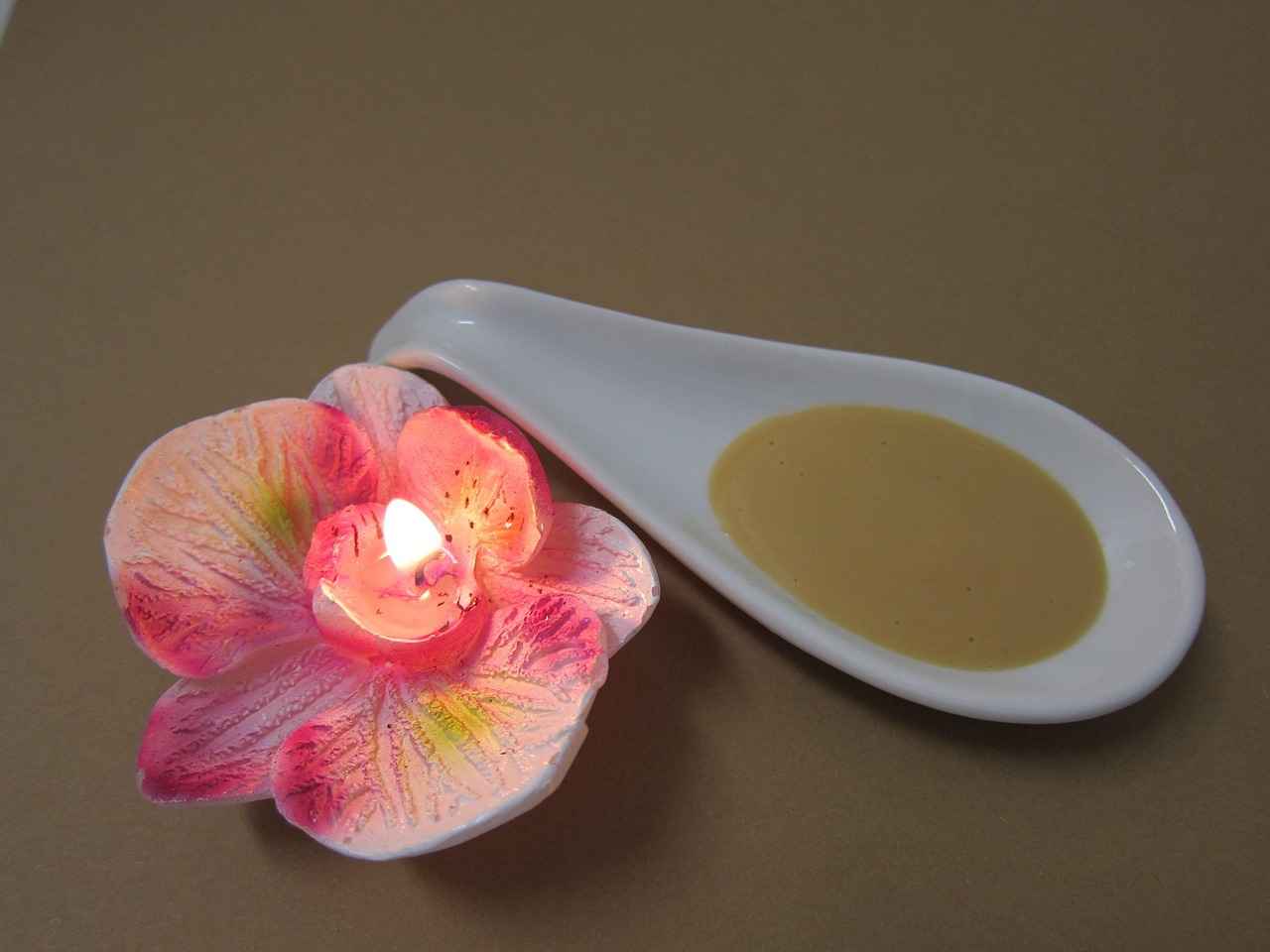This article delves into the remarkable ways in which Holy Basil, commonly referred to as Tulsi, can help alleviate stress and enhance mental well-being. We will explore its unique properties, various applications, and the scientific evidence supporting its effectiveness.
What is Holy Basil?
Holy Basil, or Tulsi, is a revered plant in India, celebrated for its extensive medicinal properties. This herb has been a cornerstone of Ayurvedic medicine for centuries, promoting not only physical health but also mental clarity and emotional stability.
How Does Holy Basil Reduce Stress?
As an adaptogen, Holy Basil plays a crucial role in helping the body adapt to stress. It effectively regulates cortisol levels, the hormone linked to stress responses, thereby fostering emotional balance and resilience.
The Role of Adaptogens in Stress Relief
Adaptogens like Holy Basil help stabilize physiological processes, allowing individuals to better manage both physical and emotional stressors. This can lead to enhanced overall well-being and improved coping mechanisms.
Understanding Cortisol and Its Effects
Cortisol, often termed the stress hormone, can have detrimental effects when levels are elevated. Holy Basil aids in naturally regulating these levels, thus mitigating risks associated with anxiety and depression.
Scientific Studies Supporting Holy Basil’s Efficacy
A growing body of research highlights Holy Basil’s potential in reducing stress and anxiety. Various studies have demonstrated its effectiveness in lowering cortisol levels and improving mood across diverse populations.
How to Incorporate Holy Basil into Your Routine
Integrating Holy Basil into daily life is straightforward. It can be enjoyed in various forms, including herbal teas, capsules, and extracts, making it easy to reap its stress-relieving benefits.
Potential Side Effects of Holy Basil
While generally considered safe, some individuals may experience side effects. It is crucial to consult healthcare professionals to ensure safe usage, especially for those with pre-existing conditions.
Who Should Avoid Holy Basil?
Certain groups, such as pregnant women or individuals with specific health issues, should approach Holy Basil with caution. Consulting a healthcare provider is advisable before introducing any new supplement.
Recommended Dosage and Forms
Holy Basil is available in numerous forms, including teas, capsules, and tinctures. Understanding the appropriate dosage is essential for maximizing benefits while minimizing potential risks.
Conclusion: Embracing Holy Basil for Stress Relief
Incorporating Holy Basil into your wellness regimen can provide significant stress-reducing benefits. With its rich historical background and scientific validation, it stands out as a natural remedy for contemporary stressors.

What is Holy Basil?
Holy Basil, also known as Tulsi, is revered in India not only for its spiritual significance but also for its remarkable medicinal properties. This aromatic herb has been an integral part of Ayurvedic medicine for centuries, utilized to enhance overall health and well-being. Its unique composition includes essential oils, vitamins, and antioxidants, which contribute to its therapeutic effects.
Holy Basil is distinguished by its rich history and diverse applications. Traditionally, it has been used to:
- Boost Immunity: Its antioxidant properties help strengthen the immune system.
- Support Respiratory Health: Tulsi is often utilized to alleviate respiratory conditions.
- Enhance Mental Clarity: It is believed to improve cognitive function and reduce mental fatigue.
Recent studies have shed light on the efficacy of Holy Basil in modern health practices. Research indicates that it can:
- Regulate Stress Hormones: Holy Basil acts as an adaptogen, helping to normalize cortisol levels.
- Improve Mood: Its compounds may contribute to a reduction in anxiety and depressive symptoms.
- Promote Heart Health: Some studies suggest it may lower cholesterol and improve cardiovascular health.
Integrating Holy Basil into your routine can be both enjoyable and beneficial. Here are some popular methods:
1. Tea: Brew fresh Tulsi leaves for a soothing herbal tea.2. Supplements: Available in capsule or extract form for convenience.3. Cooking: Add fresh leaves to salads or dishes for a flavorful twist.
In conclusion, Holy Basil stands out not only as a sacred plant but also as a powerful natural remedy with a wealth of health benefits. By incorporating this remarkable herb into your wellness routine, you can harness its potential to enhance your physical and mental health. With its rich history and growing body of scientific support, Holy Basil is truly a treasure in the realm of natural healing.

How Does Holy Basil Reduce Stress?
Holy Basil, also known as Tulsi, is more than just a fragrant herb; it is a powerful adaptogen that plays a significant role in helping the body cope with stress. This remarkable plant has been revered in traditional medicine for its ability to promote emotional balance and well-being.
One of the primary ways Holy Basil reduces stress is by regulating cortisol levels. Cortisol is often referred to as the “stress hormone” because it is released in response to stressors. Elevated cortisol levels can lead to various health issues, including anxiety, depression, and sleep disturbances. Holy Basil works to stabilize these cortisol levels, thereby mitigating the negative effects of chronic stress.
In addition to its cortisol-regulating properties, Holy Basil also enhances the body’s resilience to both physical and emotional stressors. It promotes a state of homeostasis, allowing individuals to better manage stress and maintain emotional equilibrium. This adaptogenic quality is essential in today’s fast-paced world, where stressors are abundant and often overwhelming.
Research has shown that consuming Holy Basil can lead to significant reductions in stress and anxiety levels. A variety of studies indicate that participants who incorporated Holy Basil into their diets reported improvements in mood and a decrease in feelings of stress. This evidence supports the idea that Holy Basil is not just a traditional remedy but a scientifically-backed solution for modern stress.
Incorporating Holy Basil into your daily routine can be done in several ways, such as through teas, capsules, or extracts. Each method offers unique benefits, allowing individuals to choose what fits best with their lifestyle.
In conclusion, Holy Basil serves as a natural ally in the fight against stress. By regulating cortisol levels and enhancing resilience, it helps foster a balanced emotional state. As more people seek natural remedies for stress relief, Holy Basil stands out as a potent option worth considering.
The Role of Adaptogens in Stress Relief
Adaptogens are natural substances that help the body adapt to stress and promote mental balance. Among these, Holy Basil, also known as Tulsi, stands out for its remarkable ability to enhance resilience against various stressors. This article will explore how Holy Basil functions as an adaptogen, its benefits, and practical ways to incorporate it into your daily routine.
- What Are Adaptogens? Adaptogens are herbs and roots that help the body resist stressors of all kinds, whether physical, chemical, or biological.
- Holy Basil’s Mechanism: Holy Basil helps modulate the body’s stress response by regulating cortisol levels, which is crucial in managing stress effectively.
- Benefits of Holy Basil: Regular consumption of Holy Basil can lead to improved mood, reduced anxiety, and a greater sense of well-being.
Research indicates that Holy Basil not only helps in reducing cortisol levels but also supports the immune system and promotes overall health. By stabilizing physiological processes, it enables the body to cope better with stress, both emotional and physical.
Incorporating Holy Basil into your routine can be simple and enjoyable. Here are a few methods:
- Tea: Brew fresh or dried Holy Basil leaves to make a soothing tea.
- Supplements: Available in capsule or extract form for convenient consumption.
- Cooking: Add fresh Holy Basil leaves to salads, soups, or stir-fries for an aromatic flavor and health boost.
In conclusion, Holy Basil serves as a powerful ally in the quest for stress relief. By understanding its adaptogenic properties and incorporating it into your lifestyle, you can enhance your resilience against the pressures of modern life. Embrace the calming benefits of Holy Basil and experience a more balanced, stress-free existence.
Understanding Cortisol and Its Effects
Cortisol, commonly known as the stress hormone, plays a crucial role in the body’s response to stress. It is produced by the adrenal glands and helps regulate various functions, including metabolism, immune response, and blood pressure. However, when cortisol levels remain elevated for extended periods, it can lead to serious health issues.
Chronic stress can cause cortisol levels to spike, resulting in a range of negative effects on mental and physical health. Some of the most common issues associated with high cortisol levels include:
- Anxiety: Elevated cortisol can lead to heightened feelings of anxiety and panic.
- Depression: Long-term exposure to high cortisol levels has been linked to depressive symptoms.
- Weight Gain: Cortisol promotes the storage of fat, particularly around the abdomen, leading to weight gain.
- Sleep Disorders: Increased cortisol can disrupt sleep patterns, contributing to insomnia.
- Heart Disease: Prolonged high cortisol levels can increase the risk of cardiovascular problems.
Fortunately, natural remedies like Holy Basil (Tulsi) can help manage cortisol levels effectively. This adaptogenic herb has been shown to stabilize the body’s stress response, promoting emotional balance and overall well-being.
Research supports the efficacy of Holy Basil in lowering cortisol levels, thus alleviating anxiety and improving mood. By incorporating Holy Basil into your daily routine, you can take proactive steps towards managing stress and enhancing your mental health.
In conclusion, understanding the role of cortisol is essential for recognizing its impact on health. By utilizing natural remedies like Holy Basil, individuals can effectively regulate cortisol levels and combat the adverse effects of chronic stress.
Scientific Studies Supporting Holy Basil’s Efficacy
Recent research has increasingly focused on the remarkable properties of Holy Basil, also known as Tulsi, particularly in its ability to combat stress and anxiety. This sacred plant, revered in Ayurvedic medicine, has shown promising results in various scientific studies that highlight its potential benefits for mental health.
One significant study published in the Journal of Clinical Psychiatry found that participants who consumed Holy Basil extract experienced a notable reduction in their anxiety levels compared to those who received a placebo. The study concluded that Tulsi could be an effective natural remedy for managing anxiety disorders, potentially due to its influence on cortisol levels.
Furthermore, a meta-analysis conducted by researchers at the University of California examined multiple trials involving Holy Basil and its effects on stress. The findings indicated that individuals taking Holy Basil supplements reported improved mood and reduced stress markers, reinforcing the idea that this adaptogenic herb plays a crucial role in emotional balance.
Another noteworthy research published in the Journal of Ethnopharmacology emphasized the herb’s ability to lower cortisol, the primary stress hormone. Elevated cortisol levels are linked to various health issues, including anxiety and depression. The study provided compelling evidence that Holy Basil can help regulate these levels, promoting a more stable emotional state.
In addition to its physiological effects, Holy Basil has been associated with enhanced cognitive function. A study in the International Journal of Ayurveda Research found that participants who included Tulsi in their diet exhibited improved concentration and mental clarity, further highlighting its potential as a holistic remedy for stress relief.
In conclusion, the growing body of research supporting Holy Basil’s efficacy in reducing stress and anxiety is compelling. As we continue to explore natural alternatives for mental well-being, Tulsi stands out as a valuable ally in promoting emotional health.
How to Incorporate Holy Basil into Your Routine
Integrating Holy Basil, also known as Tulsi, into your daily life can be a delightful and beneficial experience. This sacred herb not only enhances your wellness routine but also provides stress-relieving benefits that can improve your overall quality of life. Here are some effective ways to enjoy Holy Basil:
- Herbal Tea: One of the simplest ways to enjoy Holy Basil is by brewing it as a tea. Steep fresh or dried leaves in hot water for about 5-10 minutes. This soothing drink can be enjoyed hot or cold and is perfect for reducing stress after a long day.
- Supplements: Holy Basil is available in capsule or tablet form. These supplements can be a convenient option for those who are always on the go. Always consult with a healthcare provider for the appropriate dosage.
- Extracts and Tinctures: Holy Basil extracts are concentrated forms that can be added to water or smoothies. These tinctures provide a potent dose of the herb’s beneficial properties.
- Cooking: Incorporate Holy Basil into your meals. Use it fresh in salads, soups, or stir-fries to add flavor and health benefits. Its aromatic leaves can enhance dishes while providing stress-relieving properties.
- Aromatherapy: The essential oil of Holy Basil can be used in diffusers or added to bath water. Its calming aroma can help reduce anxiety and promote relaxation.
By incorporating Holy Basil into your routine through these various methods, you can enjoy its stress-relieving benefits while adding a unique flavor to your daily life. Remember to start with small amounts and gradually increase as you become accustomed to its effects.
In conclusion, whether through tea, supplements, or culinary uses, Holy Basil offers a versatile and enjoyable way to enhance your well-being. Embrace this ancient herb and let it support your journey towards a more balanced and stress-free life.

Potential Side Effects of Holy Basil
While Holy Basil, also known as Tulsi, is widely recognized for its numerous health benefits, it is important to acknowledge that some individuals may experience side effects. Understanding these potential reactions is crucial for safe consumption and optimal health outcomes.
Holy Basil is generally considered safe for most people when consumed in moderate amounts. However, certain individuals may encounter mild to moderate side effects, including:
- Gastrointestinal Issues: Some users report experiencing stomach upset, diarrhea, or nausea when consuming Holy Basil.
- Allergic Reactions: In rare cases, individuals may have an allergic reaction, leading to symptoms such as rash or itching.
- Blood Sugar Levels: Holy Basil may lower blood sugar levels, which could pose a risk for individuals with diabetes or those taking medications to manage blood sugar.
- Hormonal Effects: Due to its potential effects on hormone levels, pregnant or breastfeeding women should consult a healthcare professional before use.
It is essential to consult with a healthcare provider if you experience any adverse effects or have concerns about incorporating Holy Basil into your routine. This is especially important for individuals with pre-existing health conditions or those taking medications.
Who Should Exercise Caution?
Aside from pregnant and breastfeeding women, individuals with conditions such as hypoglycemia or those undergoing surgery should also exercise caution. It is advisable to discuss any new supplements with a healthcare professional to ensure safety and efficacy.
Conclusion
While Holy Basil offers remarkable health benefits, it is vital to remain informed about potential side effects. By understanding these risks and consulting with healthcare professionals, you can safely enjoy the stress-reducing and wellness-promoting properties of this remarkable herb.
Who Should Avoid Holy Basil?
While Holy Basil, or Tulsi, is celebrated for its numerous health benefits, it is crucial to understand that not everyone should incorporate it into their wellness routine without caution. Certain populations may experience adverse effects or complications when consuming this herb. Here are some key groups that should exercise caution:
- Pregnant Women: The use of Holy Basil during pregnancy is a topic of concern. Some studies suggest that it may influence hormone levels and could potentially lead to complications. Therefore, it is advisable for pregnant women to consult with their healthcare provider before using Holy Basil.
- Nursing Mothers: Similar to pregnant women, nursing mothers should also be cautious. The effects of Holy Basil on breast milk and the nursing infant are not well-studied. Consulting a healthcare professional is recommended to ensure safety.
- Individuals with Hormonal Disorders: Those who have conditions such as polycystic ovary syndrome (PCOS) or thyroid disorders should be cautious. Holy Basil may affect hormone levels, which could exacerbate these conditions.
- People on Blood Thinners: Holy Basil has anticoagulant properties, which means it can thin the blood. For individuals taking blood-thinning medications, this can pose a risk of excessive bleeding. It is essential to seek medical advice before combining Holy Basil with such medications.
- Individuals Scheduled for Surgery: Due to its potential effects on blood clotting, it is recommended to discontinue the use of Holy Basil at least two weeks before any surgical procedure.
In summary, while Holy Basil offers numerous health benefits, it is imperative for certain individuals to approach its use with caution. Always consult a healthcare provider before starting any new supplement, especially if you belong to one of the aforementioned groups. This ensures that you can safely enjoy the benefits of Holy Basil while minimizing potential risks.
Recommended Dosage and Forms
Recommended Dosage and Forms of Holy Basil
Holy Basil, also known as Tulsi, is celebrated for its numerous health benefits, particularly in managing stress and enhancing overall well-being. To fully harness its potential, understanding the various forms available and the appropriate dosages is essential.
| Form | Recommended Dosage | Notes |
|---|---|---|
| Capsules | 250-500 mg, 1-2 times daily | Standardized extracts are often used for consistency. |
| Teas | 1-2 cups daily | Use 1-2 teaspoons of dried leaves per cup of hot water. |
| Extracts | 30-60 drops, 1-2 times daily | Concentrated form; check for alcohol-free options. |
When considering Holy Basil, it is important to note that individual responses can vary. Factors such as age, health status, and specific health goals can influence the ideal dosage. Consulting with a healthcare professional is advisable to tailor the dosage to your personal needs.
In addition to its various forms, Holy Basil can also be found in herbal blends, tinctures, and even as an ingredient in skincare products. Each form offers unique benefits and can be integrated into your daily routine easily.
For those new to Tulsi, starting with a lower dosage and gradually increasing it can help assess tolerance and effectiveness. By understanding how to properly utilize Holy Basil, individuals can maximize its stress-relieving properties while minimizing any potential risks.
Conclusion: The versatility of Holy Basil in various forms allows for easy incorporation into daily life. By adhering to recommended dosages and consulting with healthcare providers, users can enjoy the full spectrum of benefits this remarkable herb has to offer.

Conclusion: Embracing Holy Basil for Stress Relief
Incorporating Holy Basil, also known as Tulsi, into your daily wellness routine can yield remarkable benefits for managing stress and enhancing overall well-being. This ancient herb, revered in traditional medicine, is not just a spiritual symbol but also a powerful natural remedy for the challenges of modern life.
One of the key reasons Holy Basil stands out is its classification as an adaptogen. Adaptogens are substances that help the body cope with stress by balancing physiological processes, and Holy Basil excels in this role. By regulating cortisol levels, the hormone linked to stress responses, it plays a crucial part in maintaining emotional equilibrium.
Moreover, scientific studies have begun to validate the traditional claims surrounding Holy Basil. Research indicates that this herb can significantly lower stress and anxiety levels, making it a valuable ally in today’s fast-paced world. The potential for Holy Basil to enhance mood and promote mental clarity is supported by various clinical trials, highlighting its efficacy in reducing the adverse effects of stress.
For those looking to incorporate Holy Basil into their routines, there are several options available. From delicious herbal teas to convenient supplements, the versatility of Holy Basil allows individuals to choose what best fits their lifestyle. However, it is essential to consult with a healthcare provider, especially for pregnant women or those with pre-existing health conditions, to ensure safe usage.
In conclusion, embracing Holy Basil as part of your wellness strategy can provide significant stress-reducing benefits. Its rich history, combined with scientific backing, positions it as an effective and natural remedy for navigating the stresses of contemporary life. By understanding its properties and incorporating it thoughtfully, you can enhance your mental well-being and cultivate a more balanced lifestyle.







